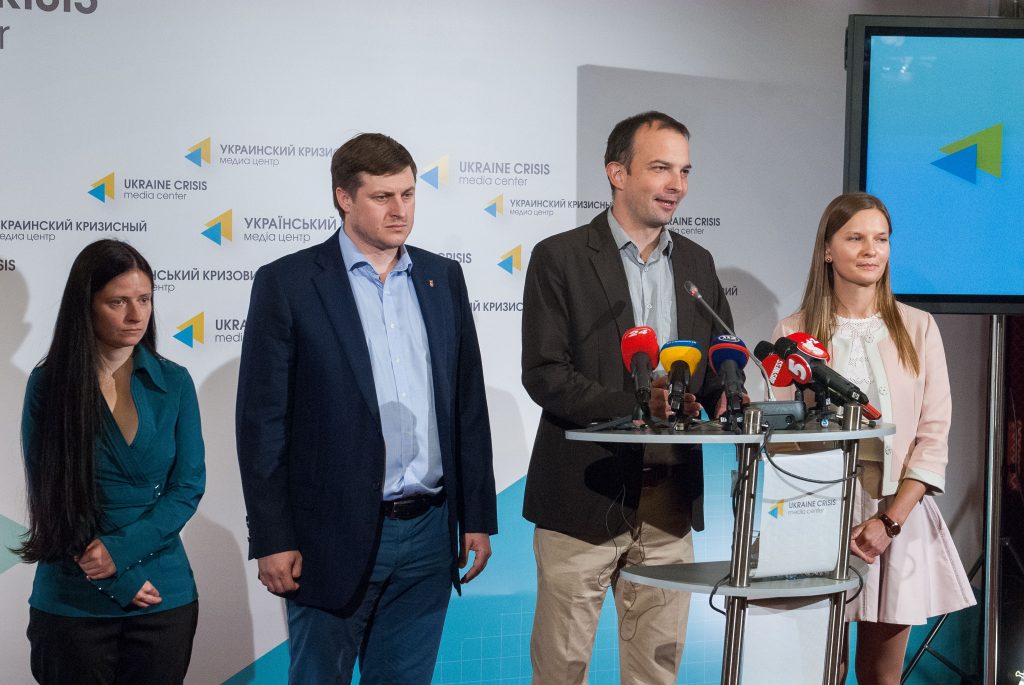Kyiv, September 17, 2014 – Civic activists are celebrating the law on lustration, which was passed yesterday by the Ukrainian parliament. The lustration law seeks to bar corrupt or authoritarian Ukrainian officials from public office or positions in the bureaucracy. This was stated at a press conference composed of civic activists and member of parliament Oleh Osuhovsky at Ukraine Crisis Media Center in Kyiv.
“First of all, I want to congratulate all the citizens, all those who believed and all those who didn’t believe,” said Yegor Sobolev, a prominent civic activist and head of NGO Civic Lustration Committee. Despite all the challenges over the past several months, members of Ukraine’s parliament succeeded in passing a law that essentially purges MPs and other officials. Despite the submission of more than 400 amendments by lawmakers meant to dilate the effects of the law, and strong resistance from some members, the determination of Ukrainian people and some politicians ensured that lustration moved forward. “We are very grateful to all political forces that voted for this law,” Sobolev said. “We also thank those MPs in the Party of Regions or previously were in the Party of Regions, because without them this wouldn’t have happened,” he added. Despite changes and amendments to the original lustration proposal, the lustration law is still largely intact.
The lustration law mandates the investigation of all politicians, officials, police officers, and judges to determine the origin of their personal property. Those who cannot account for their assets or those of their family will be prevented from holding office in Ukraine. In addition, former KGB officers, former students at KGB schools, and former members of central bodies in the Komsomol and Communist Party of the Soviet Union will be barred from office.
“In the parliament, nearly 50 percent are Kremlin agents,” stated Osuhovsky. It is extremely important that Ukrainian civil society remains engaged and ensures that the law is fully implemented. In doing so, Ukraine can learn from the experiences of other countries that have gone through similar transitions, including Germany following the Second World War, or the post-communist states of Eastern Europe, stated another Ukrainian activist. Despite expected resistance from some Ukrainian officials and the Russian government, those present expressed hope that the lustration process will successfully strengthen Ukrainian democracy.




